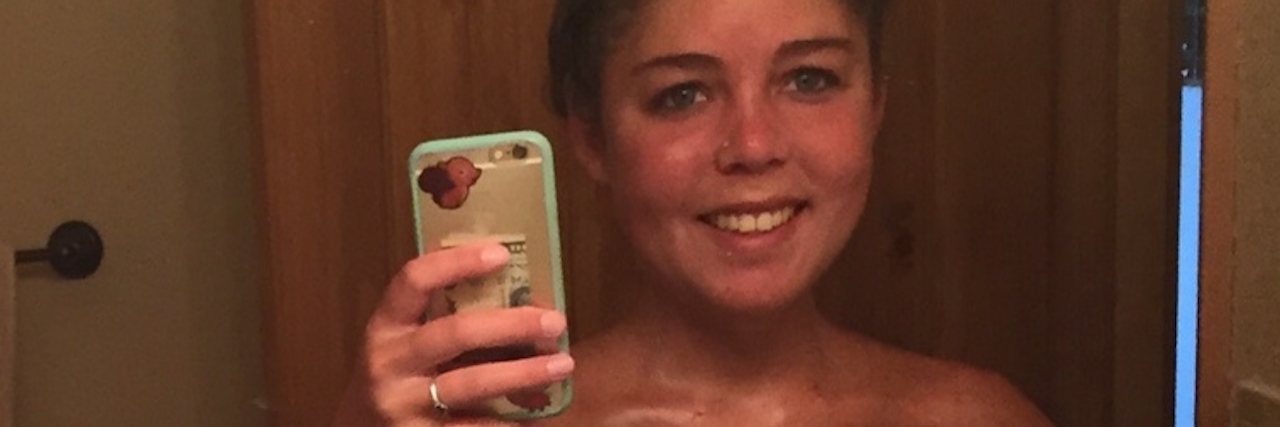“What’s wrong with you?” he asked, his voice slurred by one too many alcoholic beverages. He stared blatantly at my chest, his eyes attempting to focus on the port implanted beneath my right collarbone. A bandage covered the device in order to keep the needle, protruding from the port, in a sterile field.
“I can’t eat,” I patiently replied.
“What?! That’s horrible…” his voice trailed off as he tried to comprehend what I had told him.
A little while later he stumbled away, murmuring to himself and shaking his head as he tried to comprehend what I had just told him. I knew that his drunken state had broken down the walls that kept most people from asking the same question that he had asked. Yet, even though they never asked what was wrong, their eyes would tell a different story.
Strangers’ eyes. Always piercing and questioning. Their stares cutting deep into my soul. Normal people who wonder why I have tubes leading out from under my clothes, which connect to a small black backpack, hanging lopsidedly over one shoulder. They think they’re doing the right thing by staying silent, but what they don’t realize is that I can feel their stares from a mile away.
When I go to a cash register to check out, I watch as the cashier’s eyes stayed glued to my chest instead of my face as I try to talk to them. I try to ignore the stares. I try to pretend that they aren’t staring openly at me. I try to act normal, but it’s hard. Sometimes I just want to blurt out, “It’s called a port and it’s keeping me alive. If you have any questions, please ask them, but please just stop staring at me and acting weird or embarrassed about it. My port and my tubes are part of who I am. They aren’t bad. They aren’t something to be afraid of or feel uncomfortable about, but your stares make me feel uncomfortable.”
It’s absolutely normal to be curious about a strange device, scar or deformity on someone. It’s OK to look and wonder, but when you stare and don’t stop staring, that’s when you can start to hurt the person you’re staring at. It takes courage to go out in public when you know people will stare, and even though you know they’ll stare, bearing the brunt of those stares is never easy. You just wish people would either ask you politely what’s going on, or that they’ll look and then focus on something else.
People like me, who have something on their body that’s different, understand other people will stare. I’ve caught myself staring when I see something unusual on someone, but the trick to staring is to take a look, but then let your eyes travel to something else. And if you approach the person and talk to them, talk to them, not to their deformity or medical device. They can see when you’re not meeting their eyes and it causes discomfort and embarrassment for the other person. Yes, we know you’ll look, we know you’ll probably stare, but if you’re going to keep staring, then muster the guts to actually ask us what’s wrong instead of treating us differently or like we’re cursed.
We are human, just like you. That’s how we want to be treated. So the next time you find yourself staring at someone, do this: Move your eyes away from what’s different about them, meet their eyes and give them a smile. A smile can help encourage them and show them at least one person had the courage to treat them like a normal person instead of just staring openly at whatever is different with them.
The Mighty is asking the following: “Staring” is a topic that comes up so much in our community. Tell us about one unforgettable “staring” experience you or someone you love had that’s related to disability, disease or illness. If you’d like to participate, please send a blog post to community@themighty.com. Please include a photo for the piece, a photo of yourself and 1-2 sentence bio. Check out our Share Your Story page for more about our submission guidelines.


